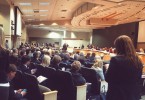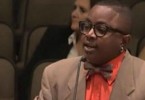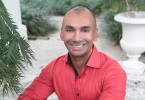Having worked for a myriad of LGBT causes, Michael Rajner is one of the most passionate activists in South Florida. He has served on the PLHIV (People Living With HIV) Caucus, worked on the Broward County School Board’s Diversity Committee, and currently is the chair of the Broward County Human Rights Board. Rajner was named one of Florida Agenda’s 100 Movers and Shakers last year, and we recently had a chance to speak to him about his work in the community.
Berkley: Do you believe that LGBTQ people in Broward County are often denied their civil liberties?
Rajner: Based on data provided by the Broward County Human Rights Section, roughly 10% of the complaints filed are related to LGBT discrimination. The great thing about living in Broward County is our Board of County Commissioners is very forward thinking, strong supporters of LGBT-equality. In Broward County, the Human Rights Act protects individuals from discrimination because of race, color, religion, sex, national origin, age, marital status, political affiliation, familial status, disability, sexual orientation, pregnancy, or gender identity or expression, in connection with employment, public accommodations, and real estate transactions.
If anyone feels they have been discriminated against in any of the above, they should contact the Broward County Human Rights Section at (954) 357-7800.
Berkley: What do you think the next president should do to stop the spread of HIV?
Rajner: Last October I had a very brief moment to speak with Secretary Clinton at a private fundraiser. At the time I asked for her to speak more about HIV/AIDS domestically as too often candidates find it challenging to discuss because of the stigma of men having sex with men. Right now I’m working with a group of amazing activists from around the country and engaging the presidential campaigns in a dialogue. Too often HIV is left on the sidelines.
Berkley: Do you think the gay community was too harsh on Hillary when she praised Nancy Reagan’s HIV-awareness work?
Rajner: No, I firmly believe the LGBT community’s outrage was appropriate. The following day I was interviewed by MSNBC’s Joy Reid to express my own frustration. Many of us were hurt—the Reagan administration was not our friend. Secretary Clinton’s first apology didn’t go far enough, but her second apology helped greatly. It reinforced why so many of us believe in her ability to lead.
Berkley: You have worked a lot within the school system. What do you think the Broward County School System could do to improve LGBTQ students’ lives?
Rajner: Over the years I helped Broward School’s be the first school district in Florida to provide protections in non-discrimination for transgender students and employees. I also had the honor to represent the LGBT community during School Board member Nora Rupert’s one-on-one interview with superintendent candidates during the hiring of Superintendent Robert Runcie. He’s been an amazing champion for LGBT students, families and employees. The most important thing we can do to improve LGBT students’ lives is perhaps to be a mentor or help financially by sponsoring events and opportunities the district is not able to budget.





